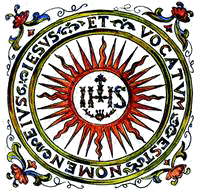... A person may, but is not bound to, use extraordinary means - those means which primarily are not considered ordinary medical care or common medical treatments. These means do not offer reasonable hope of benefit and may be excessively burdensome to either the patient or the family. Factors to consider in determining whether a treatment is extraordinary include the type of treatment, the degree of complexity, the amount of risk involved, its cost and accessibility, and the state of the sick person and his resources. One would weigh the proportion of pain and suffering against the amount of good to be done. Granted, in our world today, however, exactly what constitutes extraordinary medical care becomes harder and harder to define. For instance, accepting an artificial heart is clearly experimental and would be extraordinary, whereas the usage of a respirator or ventilator is oftentimes standard procedure to aid the patient's recovery.
While the Church makes the distinction between ordinary and extraordinary means, it would not sanction any act of euthanasia. Euthanasia, literally translated as good death or easy death, is "an action or omission which of itself or by intention causes death, in order that all suffering may in this way be eliminated" (Declaration on Euthanasia). In other words, euthanasia involves the purposeful termination of life by a direct action, such as lethal injection, or by an omission, such as starvation or dehydration. Note that euthanasia is commonly known as "mercy killing": this term is most appropriate because the act involves an intentional killing, no matter how good the intention may be to alleviate suffering ...
However, euthanasia must be distinguished from the stopping of extraordinary means of health care or other aggressive medical treatment. The patient - or guardian in the case of an unconscious patient - has the right to reject outright or to discontinue those procedures which are extraordinary, no longer correspond to the real situation of the patient, do not offer a proportionate good, do not offer reasonable hope of benefit, impose excessive burdens on the patient and his family, or are simply "heroic." Such a decision is most appropriate when death is clearly imminent and inevitable. Here a person may refuse forms of treatment which at best provide a precarious and burdensome prolonging of life. In these cases, the person would place himself in God's hands and prepare to leave this life, while maintaining ordinary means of health care.
... Another friend of mine was dying of prostate cancer, which had metastasised throughout his body. When I saw him last in the hospital, he had gone into a coma and was being fed intravenously and was breathing with a respirator. His kidneys had failed. The doctors told the family that there was nothing more they could do and the situation was irreversible. At that point, the medical technology was not providing any hope of recovery or benefit, but rather was merely prolonging the death process. The family decided to turn-off the respirator, which had now become an extraordinary means, and minutes later my friend went to meet his Lord. This action was morally permissible and different from purposefully terminating life.
Keep in mind that in both of these cases, if someone had decided to give a lethal injection to the person, or to deny the person ordinary means of health care, like food and water, then that would have been a purposeful act of killing.
The entire article, by Fr. William Saunders at Catholic Exchange, is very informative and enlightening. I would recommend reading the rest.




















No comments:
Post a Comment